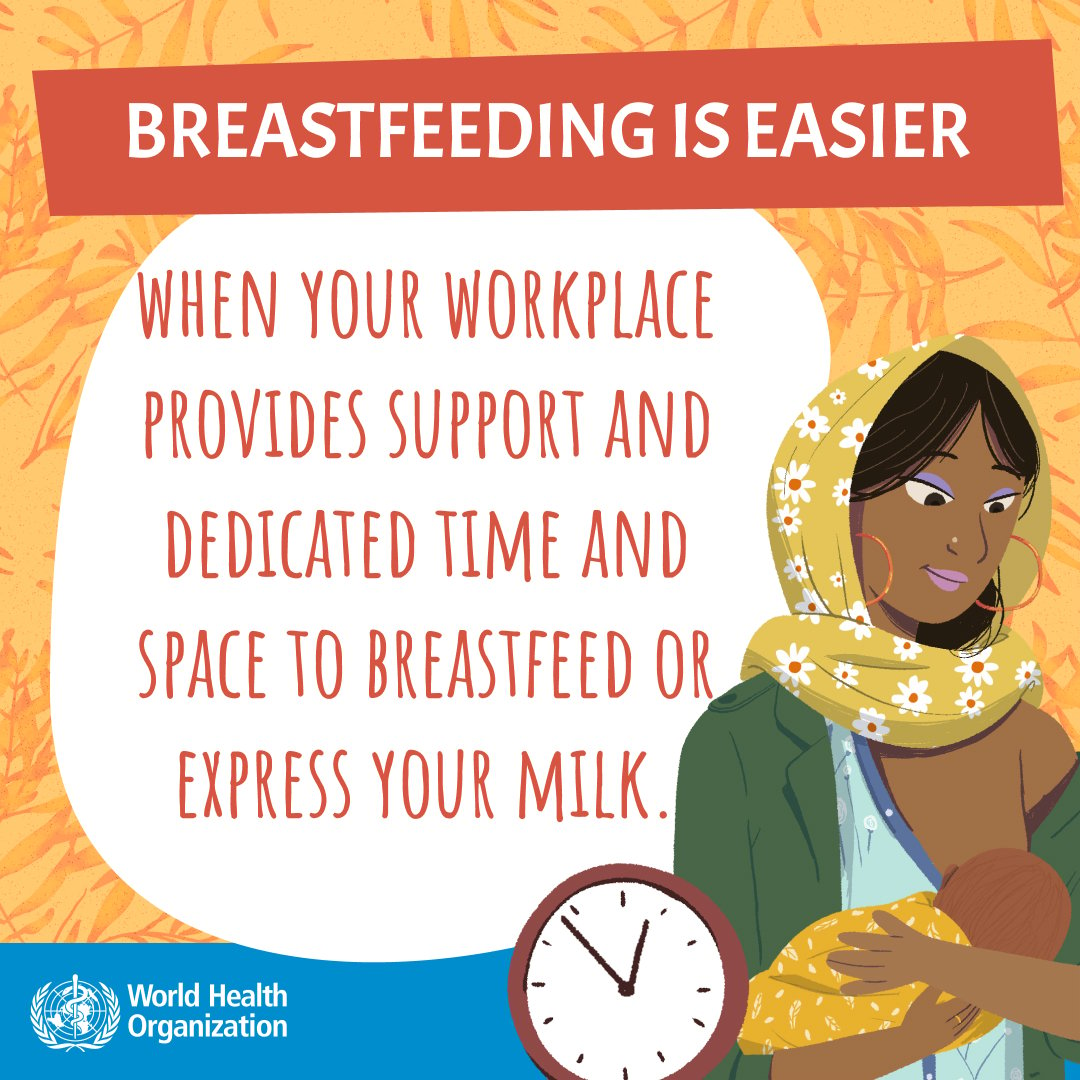BREASTFEEDING AT WORK IN KENYA: MAKING IT WORK
Introduction: Breastfeeding is a natural and essential aspect of infant care, providing numerous health benefits to both the baby and the mother. As we commemorate Breastfeeding Week in Kenya 2023, it is imperative that we address a crucial issue faced by many nursing mothers – breastfeeding at work. The theme “Let’s Make Breastfeeding at Work, Work” underscores the need for supportive policies and environments that enable working mothers to continue their breastfeeding journey without compromising their professional responsibilities. In this article, we explore the significance of this theme and highlight the steps needed to ensure that breastfeeding at work truly works for the benefit of all.
Creating Breastfeeding-Friendly Workplaces: The workplace plays a significant role in a mother’s breastfeeding journey. By adopting breastfeeding-friendly policies, employers can contribute to the well-being of their employees and their families. Providing dedicated lactation rooms, flexible break times, and supportive attitudes not only empower working mothers but also enhance employee satisfaction and retention.
Benefits for Mothers and Employers: Supporting breastfeeding in Kenya at work yields a multitude of benefits. For mothers, it eases the transition back to work, fosters a sense of well-being, and strengthens the mother-child bond. Moreover, breastfeeding has been shown to reduce absenteeism as breastfed infants are less prone to illnesses, which means fewer missed workdays for mothers.
Employers, on the other hand, gain from increased employee loyalty, improved morale, and enhanced corporate image. Breastfeeding-friendly policies showcase a commitment to family values and employee welfare, which can positively impact a company’s reputation.
Breaking Barriers through Education: Creating an environment where breastfeeding at work can flourish begins with education and awareness. During Breastfeeding in Kenya Week, workshops and seminars can educate both employees and employers about the benefits of breastfeeding and the practicalities of implementing breastfeeding support in the workplace. Dispelling myths and addressing concerns helps create a culture of understanding and acceptance.
Empowering Nursing Mothers: Nursing mothers should be encouraged to communicate their needs openly. Flexibility in work hours, the availability of comfortable lactation spaces, and the option to work remotely can make a significant difference. When employers prioritize these aspects, they empower women to balance their professional commitments with the important task of nurturing their infants.
Executive Director and WHO Director-General on the occasion of World Breastfeeding Week
Government and Community Involvement: Government policies play a pivotal role in shaping breastfeeding practices in workplaces. By enacting and enforcing laws that protect the rights of nursing mothers, governments can ensure that all women have the opportunity to breastfeed their babies, regardless of their work responsibilities. Additionally, community support networks can provide invaluable assistance and encouragement to nursing mothers.
Conclusion: The theme “Let’s Make Breastfeeding at Work, Work” is a call to action for all stakeholders – employers, employees, governments, and communities – to come together and create an environment where breastfeeding is seamlessly integrated into the workplace. By supporting nursing mothers in this endeavor, we not only promote the health and well-being of our future generations but also demonstrate our commitment to a more inclusive and caring society. As Breastfeeding Week unfolds, let us strive to make breastfeeding at work not just a possibility, but a resounding success.

